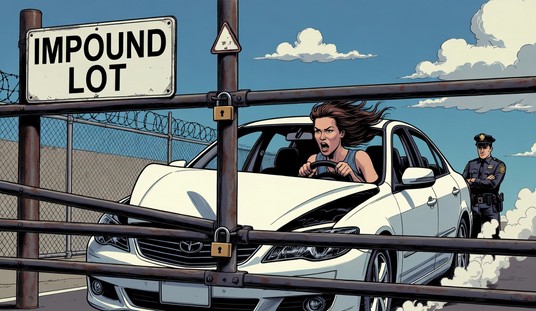It has become popular to contribute to the conversation regarding Steve Jobs’ death with a solemn sense of deification. How do you put into perspective the life’s work of a man who almost single-handedly took control of the modern marketing of music by making it possible to carry a lifetime’s worth of music in the palm of your hand?
In my case it’s a little more difficult, considering the sobering fact that – and some of you out there may consider this a form of heresy – I have never owned an iPod, an iPhone, or an iPad. But the impact of all three, and the advent of iTunes, affected how I consume music even now. The gulf between how I access music now compared to even a decade ago is astoundingly wide.
I can thank Steve Jobs’ unique vision for that.
What’s amazing about Jobs’ work with Apple during his “second coming” is that, even for those of us who never took the plunge and bought his signature products, his modernizations have dominated the musical landscape since the start of the new millennium. We can’t help but speak of him and his work, even when we chose to use products from the many others who rushed to copy his vision of an alternative to the “big and clunky or small and useless” attempts at putting electronic music files in the pockets of everyone in America.
Being from rural southern Indiana, my community didn’t get full use of the Internet until I was a junior in high school. So prior to that late date, I had little use for a home computer beyond typing endless term papers and other ephemera. I cobbled together my first home computer during my senior year and, with the benefit of a slow dial-up modem, I stumbled on the earliest versions of Napster. From that moment my love of mp3s and portable music was born, and my appetite for new music was insatiable.
The problem was, there were few ways to use those mp3s other than just ripping CDs and remixing them, creating endless streams of mix-tapes. I’d purchased an mp3 CD player when I left for college, thinking it would be convenient to burn discs of nothing but mp3s, that one player could play simply by reading it like a normal CD. But the player was terribly designed, and its eye could barely handle reading the mp3s to the point where I spent most of my time praying that I’d be able to get to class without the CD becoming scratched.
Jobs changed that with the launch of the iPod which left all prior forms of portable music devices in the dust. Even then, however, the portable player was primarily a way to store and carry your already existing collection of music ripped from CDs, or to partake of the many less-than-legal online options which still were in vogue.
I honestly never thought the record companies would get their acts together and license anyone to put the music for sale online in these formats, especially after they shut down Napster and watched the Internet spring up with so many unstoppable copycats once the masses were driven underground. It seemed far more likely that each label would choose its own “favorite” start-up, and you’d never be able to find that one place where you could locate all the music you wanted to consume. We’d have wound up with ten or twenty warring download sites, none of which would have offered half of what the music fans really wanted.
Somehow Jobs managed to do just that, however, getting the labels to agree to support his site and provide virtual one-stop music shopping for the digital world. With the launch of iTunes, to which even I was not immune, he took firm control of the direction of the music industry for the remainder of the decade. Album sales continued to decline, but the music of seemingly everyone was immediately at our fingertips for less than a dollar per song. That’s where his true genius was able to shine – Jobs knew that for people to adopt the new technology, they needed to have a player they’d want to carry around and show off, one which looked as good as it worked. But more than that, for such a player to truly take off, people needed to be able to buy the music.
In the process he helped push us further from the world of buying CDs in physical form because suddenly there was music democracy. Rather than propping up the dying CD as a format, Jobs and iTunes made it okay to buy music online and tell the record labels what we wanted rather than having their system forced down our throats. If you didn’t want to buy an album full of filler, you didn’t have to – you could go online to the iTunes store and for ten bucks buy your own personalized “Greatest Hits” collection. And it was completely legal.
Yet he also opened the distribution world up to the masses. Prior to iTunes, you could go online and steal any album you wanted, but there was always the sense that you were one step away from the RIAA suing you to the point of bankruptcy if you made a wrong move. What iTunes did was make it possible for a user to find any album covered under its licensing deal and buy it immediately. Talk about opening up worlds of musical discovery to the masses!
When I was a teenager, prior to having access to the Internet my only way to purchase new music was to buy from WalMart or wait for an album to be available from one of the many “record clubs” I subscribed to. In rare instances I’d get the opportunity to drive an hour or two to a city with a decent record store, but for the most part I had to bide my time and money and then buy the music which was available. That system worked well enough if something I wanted was in the pop vein, but I spent years slowly collecting music from outside the mainstream.
Kids today can thank Steve Jobs for the fact that they’ve got it all at their fingertips. Any album can build a reputation online and find an audience. It’s no longer necessary to have your music distributed into a brick-and-mortar store, and that seemed truly revolutionary even a decade ago. Playlists took off, as it became popular to ask famous people “what’s on your iPod?”
Jobs wasn’t happy just leading the mp3 revolution. He spent the rest of his life working to transform cell phones to “smart” phones, laptops into sleek “notepads.” There’s no limit to what he could have done in the coming years if he’d been granted a longer life, and his impact will clearly be felt across the tech spectrum for generations.
It has been said that Jobs was rarely the first person to do something, but when he did it, he did it so well everyone else had to follow him or get out of the business. That’s going to be his legacy. Whether anyone has the skills and the personality to forge a path into the next decade of creation in his image remains to be seen, but no one’s going to be forgetting his impact any time soon.











Join the conversation as a VIP Member